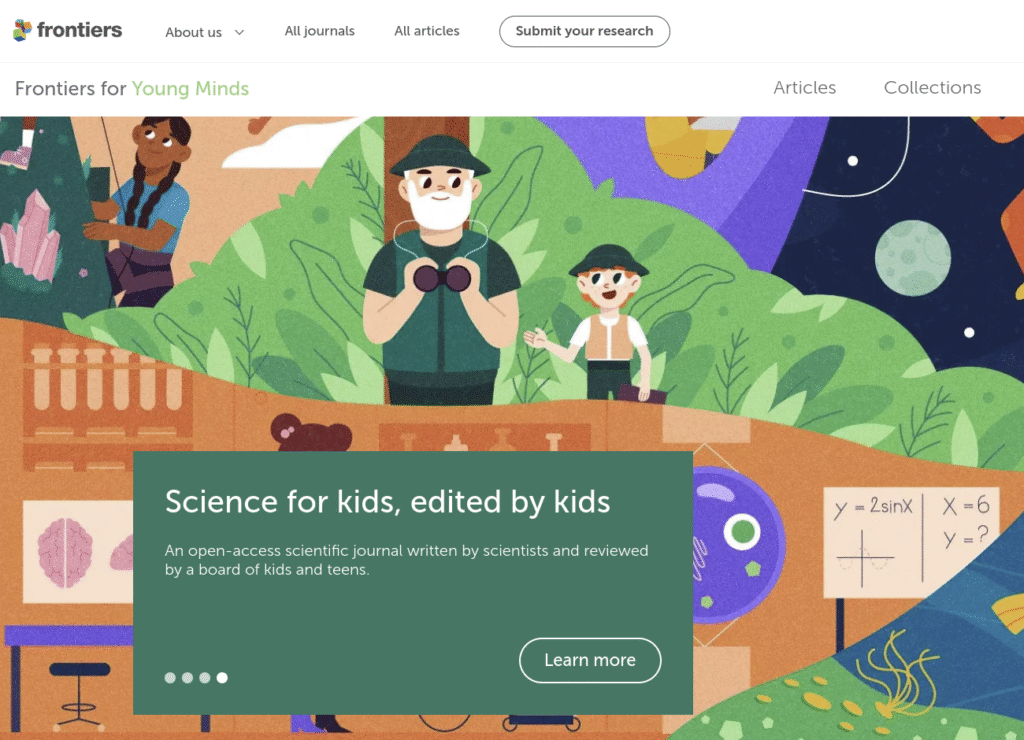In the digital age, where we have access to so much information, it is crucial to equip our students with the tools to understand and develop a passion for science. This is where Frontiers for Young Minds stands out as a fundamental resource.
Frontiers for Young Minds is an innovative initiative designed to bring scientific research closer to children and adolescents. What makes it unique is its review process: the articles, written by scientists, are reviewed by young people guided by scientific mentors. This ensures that the language and complexity are appropriate for its audience, making science accessible and engaging.
Its main goal is threefold: to democratize access to cutting-edge science by overcoming technical barriers; to foster scientific literacy and critical thinking from an early age; and to inspire the next generation of scientists by showing science as a vibrant and dynamic discipline.
The platform offers a vast collection of adapted scientific articles organized by topics, ranging from neuroscience to ecology and robotics. Each article is clear, concise, and often includes illustrations and glossaries that facilitate understanding. For teachers, it is an invaluable pedagogical tool, ideal for enriching classes and promoting active methodologies.
The possibilities offered by this resource are endless. With these articles, we can organize dialogic scientific gatherings, as the texts are perfect for discussion, inviting joint reflection and the development of communication and argumentation skills. They serve as a starting point for students to explore topics, design experiments, and present their findings through research projects. Moreover, they foster critical thinking, as students gain access to scientific evidence from an early age and learn to distinguish reliable information. These articles also help develop scientific vocabulary, stimulate curiosity, and address current problems and solutions, showing the relevance of science in everyday life.
Ultimately, Frontiers for Young Minds is not just a library; it is a platform that empowers the new generations, inviting them to become protagonists of their own scientific learning. By integrating these resources into our classrooms, we not only transmit knowledge but also cultivate a spirit of exploration, curiosity, and critical thinking—shaping informed citizens capable of facing the challenges of tomorrow.
Article translated from Periódico Educación
Secondary school teacher


